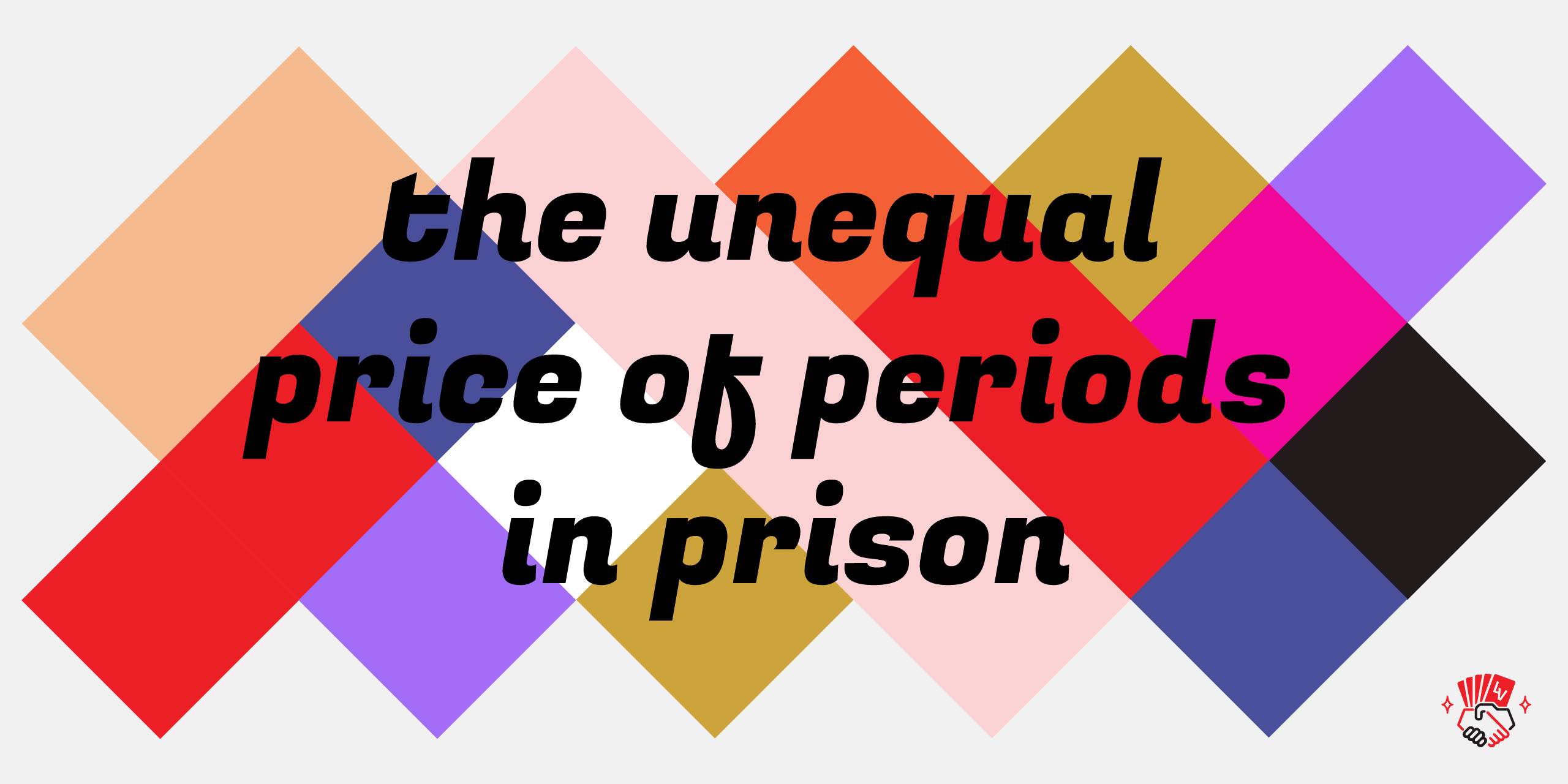The Unequal Price of Periods in Prison
As a mental health therapist I started working with people who were incarcerated over 20 years ago. I did then and I do now love working with that population. However, the system that holds them is no place that I would ever work for. I learned many things from my clients about the prison system and how it works and doesn’t work.
As a middle-aged, middle-class, educated Caucasian female, I had never been incarcerated or even arrested. My privilege was showing – out loud and in technicolor. By sitting and listening to my clients – primarily through the work with one female client I “followed” through the system – I learned how class-based the system was. Those incarcerated individuals who had family, friends, and financial support on the “outside” had an easier and sometimes even more profitable stay than those who did not. In the prison system there are many items that are used for currency – menstrual products were one of those tools of currency.
In America, there are not uniform laws that ensure adequate provisions of menstrual products for incarcerated individuals. The State of Nevada is one of the states that doesn’t have any laws requiring menstrual products be provided to all incarcerated persons at no cost and in adequate supply. Those caught in the criminal justice system have to beg or bargain with staff for their hygiene needs, furthering the power imbalance that already exists in the carceral system.
Without proper access to supplies, incarcerated individuals may end up bleeding on themselves, which can further shame and stigma, limit their participation in facility programming, and cause them to cancel or delay visitation from family and attorneys. According to the ACLU, women in the Tutwiler Prison for Women in Alabama were forced to trade sexual favors with officers in charge of them for adequate menstrual supplies.
When menstrual supplies are used as currency between inmates, this can lead to abuse, exploitation, and alienation within and between the incarcerated individuals. In the prison system, supplies that are given out are often not adequate in the amount, type or fit for the individual. Beside bartering with other incarcerated people or staff, they are often required to buy supplies through the prison commissary system. According the The Federal Bureau of Prisons Commissary Shopping List, two (2) tampons are $5.55 each and two (2) pantyliners are $1.35 each. A search of Amazon reveals that a box of tampons (multipack) 47 count is $9.39.
It is important as socialist feminists that we recognize menstrual inequity wherever it exists, including for persons who are incarcerated. It is vital that menstruation is seen as a natural bodily function and that all individuals have access to supplies that maintain their dignity, health and well-being. Individuals incarcerated in the State of Nevada should be protected by laws that see menstruation as such and provide as many freely available menstrual products as necessary to people who menstruate. Menstrual supplies should not be part of a bartering system between incarcerated individuals or a power play by staff, but a human right for all.
Menstrual Product Drive
LVDSA’s Socialist Feminist Committee has partnered with local women & children’s shelter The Shade Tree on a Menstrual Product Drive. If you would like to make a physical donation, please text or leave a message at 702-623-6316, or you can make a financial donation here!

